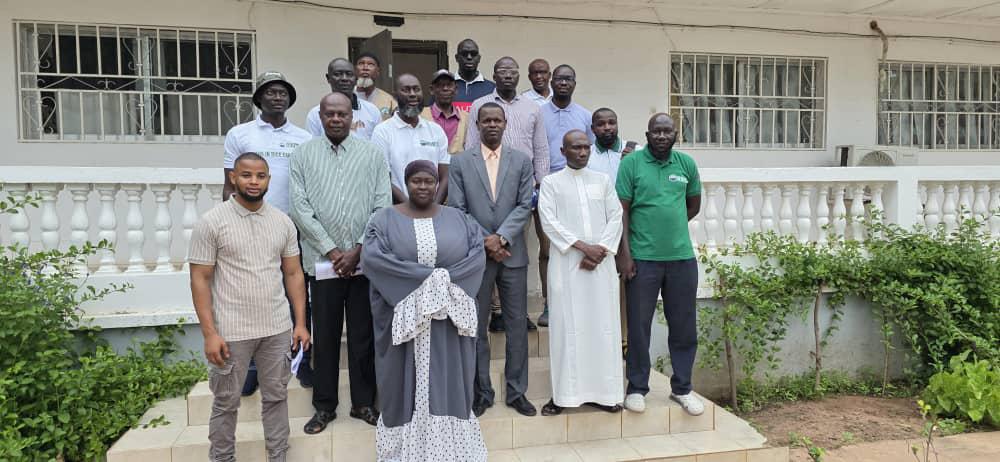Day 3 of the NSC Field Visit began with a courtesy call on the Governor of URR, Hon. Samba Bah. The ROOTS Project Director, Mr. Mamour Alieu Jagne, expressed appreciation for the Governor’s continued cooperation since the regional launch of the project. The Hon. Governor welcomed the team warmly and praised ROOTS as “a household name and one of the best projects in the country,” commending its transformative role in rice production, land development, matching grants, and cold storage facilities. He described ROOTS as a paradigm shift in project implementation that instills sustainability in the minds of beneficiaries.
The team then proceeded to Diabugu Batafa, where 32 households benefitted from ploughing services, fertilizer, rice seeds, and herbicides for the very first time. The community shared how ROOTS had eased long-standing challenges in rice production, ploughing 16ha this season. They appealed for drainage solutions to allow year-round production, timely services, road access to fields, and a rice milling machine.
At Kurau Kemo, the team met with Fatoumata Kanteh, a ROOTS Youth-Based Matching Grant beneficiary. With her tricycle, she has earned over D90,000 since October, supporting her family, starting a sheep-fattening business, and creating employment for a driver. The community also highlighted its use for emergencies and produce transport, though they appealed for spare parts support.
In Sare Alpha Garden, the 236-member cooperative (including 10 differently abled members) showcased how ROOTS support has improved their food security, health, and income. Women beneficiaries highlighted their contributions to family upkeep, children’s education, and rainy season onion sales. However, they requested support with transport, marketing, storage, and garden implements. The team encouraged them to apply for future Youth-Based Matching Grant opportunities for tricycles and processing equipment, while commending their sustainability plan through cooperative contributions.
The day ended at Basse, where the team visited the onion curing facility of Mamajang Jallow, provided through the Crisis Response Initiative to reduce post-harvest losses. The facility, which can cure 2 tons per hour, serves women gardeners from Basse and surrounding areas. While marketing is going well, he noted challenges with negotiating fair prices between farmgate and market levels.
The day’s visits highlighted how ROOTS is positively impacting livelihoods in URR, supporting rice farmers, empowering youth entrepreneurs, strengthening women’s cooperatives, and improving post-harvest management.


